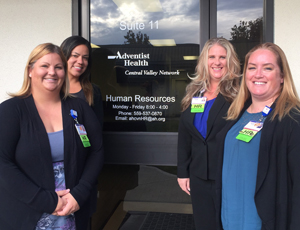2016 Teddy Awards: Honorable Mention
Caring for the Caregivers
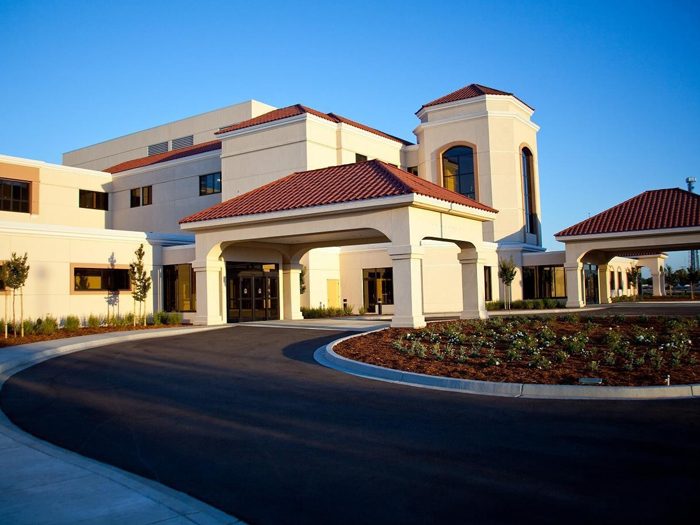
Hospital workers face a dizzying array of health and safety risks for workers, but Sonni Burrell and her team at Adventist Health Central Valley Network in Hanford, Calif., are committed to protecting every employee who cares for their patients and keeps operations running smoothly.
The organization realized a 23 percent drop in injury frequency since 2012, despite a steadily growing employee population. And since 2011, the organization achieved a nearly 79 percent drop in its average total incurred cost per claim, along with a 74 percent drop in its average medical cost per indemnity claim.
Risk & Insurance® recognizes these results with a 2016 Teddy Award Honorable Mention.
One major challenge had been exposures to blood-borne pathogens from accidental butterfly needle sticks during venipunctures, said Burrell, the network’s human resources and workers’ compensation manager.
These occurred when clinical staff removed the needle from use and began to activate the safety mechanism.
They had been using a safety-lever butterfly needle, requiring them to slide forward the safety device over the needle. The safety device was located on the back housing of the needle, causing the employee’s finger to often slip when activating the device, up to the point of the needle and causing a blood-borne pathogen exposure.
“When I was hired, I went to our employee health department to get a pre-employment physical, and the nurse working with me mentioned that she was having such trouble with the butterfly blood draw needles,” Burrell said.
Burrell researched network records, validated the nurse’s concerns and collaborated with materials management, infection prevention, and finance to make a change.
The network switched to a retractable butterfly needle, which retracts into the housing unit by depressing a button after use, while the needle is still engaged in the vein, never exposing the dirty needle.
Since the switch in the fourth quarter of 2013, there have been no new butterfly needle sticks.
“We are focused on keeping our employees engaged in order to fulfill our vision to be the best place to receive care, the best place to practice medicine and the best place to work.” — Sonni Burrell, human resources and workers’ compensation manager, Adventist Health Central Valley Network
After a significant investment in patient-lift equipment across all facilities, Burrell’s team wasn’t satisfied with the reduction of injuries related to patient handling. The team investigated the problem, and uncovered a training disconnect.
They implemented additional mandatory training sessions to stress the importance of the proper use of the lift equipment and to give employees a better understanding of when to use the equipment.
Patient handling-related injuries have been trending steadily downward since the additional training was implemented.
In 2015, the organization applied for a grant to create an ergonomics program. They were able to train two employees as Certified Ergonomic Evaluation Specialists (CEES), who are now conducting ergonomic assessments in all office, lab, industrial and health care environments.
They also purchased web-based software, currently being used by 1,300 employees, that guides employees through the process of setting up ergonomically sounds workstations.
In an industry with the most non-fatal injuries according to the Bureau of Labor Statistics, it’s important for hospital staff to be safe, Burrell said.
“If they are injured and are unable to work, or cannot work at full capacity, they may not be able to deliver the best patient care — which is our goal as an organization,” she said.
“It’s also important to employee engagement. We are focused on keeping our employees engaged in order to fulfill our vision to be the best place to receive care, the best place to practice medicine and the best place to work.” &
_______________________________________________________
Read more about the 2016 Teddy Award winners:
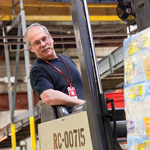 Bringing Focus to Broad Challenges: Target brings home a 2016 Teddy Award for serving as an advocate for its workers, pre- and post-injury, across each of its many operations.
Bringing Focus to Broad Challenges: Target brings home a 2016 Teddy Award for serving as an advocate for its workers, pre- and post-injury, across each of its many operations.
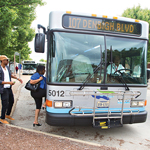 The Road to Success: Accountability and collaboration turned Hampton Roads Transit’s legacy workers’ compensation program into a triumph.
The Road to Success: Accountability and collaboration turned Hampton Roads Transit’s legacy workers’ compensation program into a triumph.
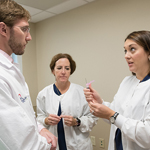 Improve the Well-Being of Every Life: Excela Health changed the way it treated injuries and took a proactive approach to safety, drastically reducing workers’ comp claims and costs.
Improve the Well-Being of Every Life: Excela Health changed the way it treated injuries and took a proactive approach to safety, drastically reducing workers’ comp claims and costs.
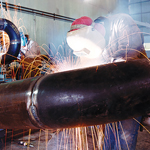 The Family That’s Safe Together: An unwavering commitment to zero lost time is just one way that Harder Mechanical Contractors protects the lives and livelihoods of its workers.
The Family That’s Safe Together: An unwavering commitment to zero lost time is just one way that Harder Mechanical Contractors protects the lives and livelihoods of its workers.
More coverage of the 2016 Teddy Awards:
Recognizing Excellence: The judges of the 2016 Teddy Awards reflect on what they learned, and on the value of awards programs in the workers’ comp space.
Fit for Duty: 2013 Teddy Winner Miami-Dade County Public Schools is managing comorbid risk factors by getting employees excited about healthy living.
Saving Time and Money: Applying Lean Six Sigma to its workers’ comp processes earned Atlantic Health a Teddy Award Honorable Mention.
Caring for the Caregivers: Adventist Health Central Valley Network is achieving stellar results by targeting its toughest challenges.
Advocating for Injured Workers: By helping employees navigate through the workers’ comp system, Cottage Health decreased lost work days by 80 percent.
A Matter of Trust: St. Luke’s workers’ comp program is built upon relationships and a commitment to care for those who care for patients.
Keeping the Results Flowing: R&I recognizes the Metropolitan Water Reclamation District of Greater Chicago for a commonsense approach that’s netting continuous improvement.

